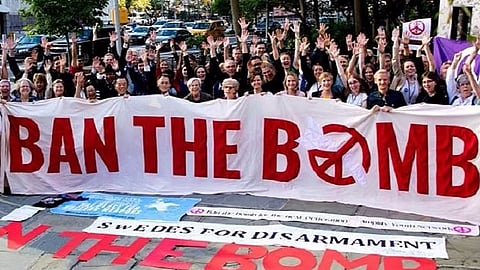

In an era marked by stark double standards, the authority of the United Nations and its nuclear safeguards is rapidly unraveling. When powerful states act with impunity—striking on mere suspicions of nuclear development while shielding their own arsenals from scrutiny—the bedrock principles of transparency, equality before international law, and collective security collapse. This credibility crisis is thrown into sharp relief by the case of Israel’s undeclared nuclear capability versus the global pressure on Iran, raising urgent questions about why the United Nations’ own watchdogs are unable to enforce a fair, universal standard.
On June 26, the Washington Post published a list of the world’s nuclear weapons states. According to the report, compiled by the Federation of American Scientists (FAS), nine countries officially own nuclear weapons. Israel, which has 90 nuclear warheads, is also on the list. It is noteworthy that Iran is not named. Yet, Israel attacked Iran on suspicion that it was developing a nuclear capability. This nuclear double standard raises fundamental questions-about the effectiveness of international institutions such as the United Nations. The important question, which is both logical and fair, is: What moral right does a nuclear-armed state have to attack a non-nuclear-armed state on the grounds that it is suspected of developing one? This question also raises the issue of global responsibility.
2025 Data: Countries with Nuclear Weapons
Neither the FAS nor Stockholm International Peace Research Institute (SIPRI) recognises Iran as a nuclear-armed nation. Yet Israel, which operates outside the Nuclear Non-Proliferation Treaty (NPT), has an undeclared but widely acknowledged nuclear arsenal. Unlike Iran, Israel refuses to submit to inspections by the International Atomic Energy Agency (IAEA), which works under the UN to check nuclear compliance.
When Israel launched military action without UN authorisation, bypassing the IAEA, it effectively undermined global standards and made a mockery of UN authority.
Israel has never allowed international inspections of its nuclear facilities and is not a signatory to the NPT. It keeps its nuclear stockpile protected and beyond scrutiny, while launching aggressive military operations against nations like Iran, even when their nuclear activities are tied to civilian energy needs.
Shouldn’t Israel, like Iran, be subjected to strict international inspections?
If the UN and its nuclear watchdogs cannot hold Israel accountable, then the world is no longer governed by principles—but by power. And that is a deeply dangerous precedent.
This credibility crisis was foreseen by Indian tech visionary Sam Pitroda, in his book Redesign the World. Pitroda argues that international institutions like the UN, designed after World War II, reflect a bygone industrial, bipolar era dominated by the U.S. These structures are now outdated, ineffective, and ill-equipped to handle the complex challenges of a hyper-connected, multipolar, nuclear-capable world.
He calls for a new global framework—not based on U.S. or Chinese models, but on transparency, justice, and human-centered values. Institutions like the UN, IAEA, NPT, IMF, WHO, WTO, and others need redesigning to fit today’s realities, Pitroda says.
Today’s nuclear world is inherently unstable. It allows countries like Israel to maintain secret arsenals while preventing others from even exploring nuclear energy. This fuels a system where international law is selectively enforced, and institutions like the UN are weakened to the point of irrelevance.
India—given its nuclear capability and proud tradition of moral diplomacy—must oppose this international complicity in nuclear hypocrisy. Silence is not neutrality; it is complicity. Nuclear policies must be legally and ethically uniform for all nations. Otherwise, the world will keep seeing power-based exceptions destroy any hope for impartial justice.
Without fair and enforceable nuclear disarmament, future wars may be fought not over weapons—but over suspicions. Before that happens, the United Nations must be reformed along with its treaties and institutions.
The call to redesign the global order has never been more urgent.
Mansoor Palloor is a foreign affairs commentator. Views expressed are the author’s own.